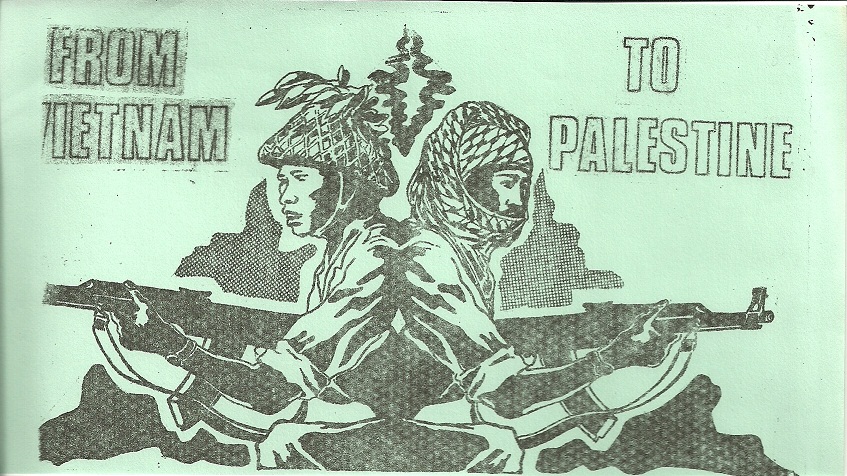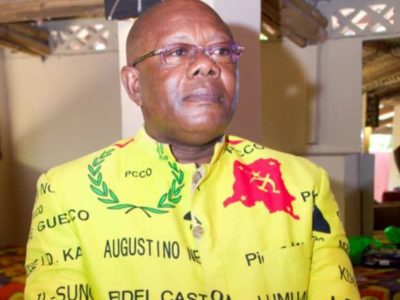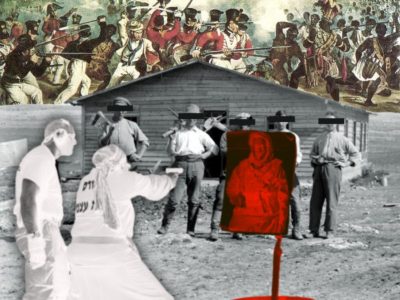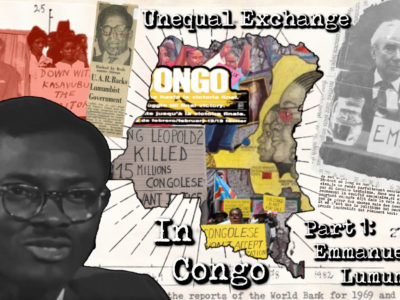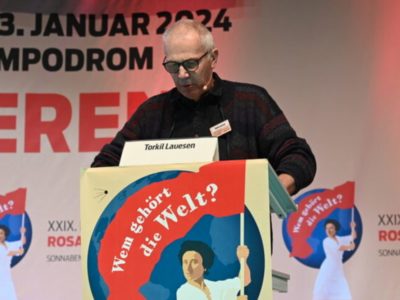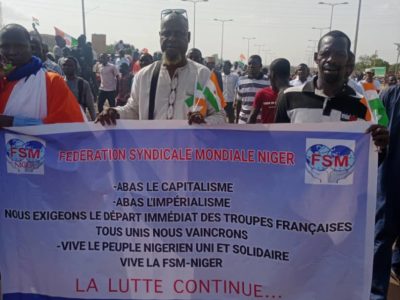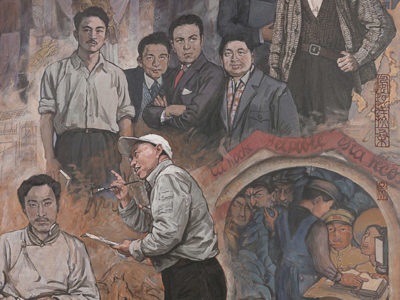When the war in Gaza is over, it will be time for reflection on how to carry on the struggle. The text it meant as contribution to this process.
My perspective
I am not a state-less Palestinian, longing for statehood. I am living in Denmark; an imperialist welfare state, with a government that fully supports Israel. As a communist, my perspective and goal are not just the national liberation of Palestine, but a socialist transformation. I have supported the Palestine struggle since the late 60s, because it had a clear perspective of a socialist transformation, not only in Palestine, but through this struggle, for the whole Arab world. See for example the “Strategy for the Liberation of Palestine” published by PFLP in1969.
In the past decades the socialist perspective has been toned down by the Palestine left wing. For example, “Masar Badil” – the “Palestinian Alternative Revolutionary Path Movement”, does not mention socialism with one word on its website. Masar Badil otherwise quotes “Ghassan Kanafani, the former spokesperson of PFLP in its statement: “If we are unsuccessful defenders of the cause, then it is better for us to change the defenders, and not to change the cause.” For sure, a secular socialist Palestine was the cause of the PFLP.
The title of the first section in “Strategy for the Liberation of Palestine” is the “Importance of Political Thought”. The program is explicitly socialist in its discourse; the categories and concepts employed, and its method of analysis are Marxist. The Palestinian struggle is seen as part of a global struggle for socialism. It is not just a struggle for a national state, which might as well be a petit-bourgeois, bourgeois, or an Islamic project. No, the goal is also a social revolution led by the working class and peasantry.
A real alternative to the “Palestinian Authority” on the West Bank and the Islamic branch of the resistance would be the struggle for a secular socialist Palestinian state from the river to the sea.
The socialist perspective of national liberation struggle is of importance since the decolonization and establishment of new national states in the Third World in the 50’s and 60’s was, in most cases, just the beginning of new forms of exploitation and oppression from imperialism and local despots. If the result of a national struggle would be some form of an Islamic Palestine state, then this state would be an enemy of mine. It does not lead to economic and social liberation. The lesson from Iran is that for Islamists, communists can be temporary useful idiots, who you get rid of once you are in power.
My method
This text is about strategy. Political practice is often the result of rather spontaneous reactions to economic hardship and oppression. However, without an analysis of the world, and on this base development of a strategy, one’s political practice is unlikely to lead to change. Analysis requires a constant back and forth between empirical study and theoretical reflection. Strategy requires a back and forth between the results of our analyses and their practical application. How should we carry out our analysis?
We act where we are situated. What else can we do? Our praxis is often a direct response to local conditions, as we experience them. However, the local conditions are not exclusively decided by local factors.
Since the dawn of European colonialism, the world system has been more and more globalized. The past fifty years of neoliberalism have globalized capitalist production itself, in the form of production chains. Capitalism is globalized in the economic sense. If we consider the development of the world system as one single process, then this process, according to dialectic materialism, has a principal contradiction emerging from contradictions in the capitalist mode of production and reflected in world politics.
These successive principal contradictions affect regional, national, and local contradictions decisively. However, the interaction between the principal contradiction and national and local contradictions is not one-sided. Due to the feedback effects, and the struggle between the aspects, the principal contradiction changes in the course of history. The local situation is defined by the interaction between the global principal contradiction and the contradiction on the regional, national, and local levels. An efficient strategy requires a specific analysis of the local actors within the regional and global framework.
Hence the importance of identifying the principal contradiction, as the starting point of developing a strategy. Which is the dominant and offensive aspect? How does it interfere with local contradictions? To answer such questions, let’s take a close look at the principal contradiction.
The principal contradiction
The neoliberal economic and political offensive from the late 70’s and onwards crushed the anti-imperialist spirit of the 60’s within a decade. Capitalism had yet an ace to play – globalization of industrial production. The result was the relocation of hundreds of millions of industrial jobs from the Global North to the low-wage countries of the South, in search of higher profits. In a decade neoliberalism changed the international division of labor. Today 85% of the industrial workers are in the Global South. Neoliberal globalization gave capitalism forty golden years of high profit and cheap goods for consumers in the Global North. It dissolved the socialist bloc and penetrated deep into the Chinese economy. The forty years of neoliberal globalization changed the world system profoundly. On one hand, the result of the industrialization of the Global South, was increased transfer of value to the North. On the other hand, the development of the productive forces in the Global South began to turn the table. China – a former peripheral state – became the crank in the capitalist system of production, as an unintended side effect of the capitalist desire to exploit the Chinese proletariat.
Imperialism has changed its face
The economic rise of China has forced the US to switch strategies to uphold its hegemony, away from neoliberal globalization towards geopolitical territorial rivalry. This is not an expression of strength, but of economic weakness. Economic competition has changed to economic warfare, using boycotts, blockades, and punishment packets. The transnational financial, trade, and political institutions built under neoliberalism are eroding, and instead, we see the strengthening of old and the construction of new military alliances.
The US/NATO proxy war in Ukraine against Russia and the “cold war” against China is an attempt to uphold US supremacy. However, in this process, US policy shatters the neoliberal world market, on which it has built its power and wealth in the past fifty years. It is killing the goose that laid the golden egg.
The US, EU, Japan, and Australia are for the time being united in the effort to uphold US hegemony. They constitute one aspect of the current principal contradiction. The other aspect is headed by China in its ambition to build “socialism with Chinese characteristics” and a multipolar world system. In this effort, China is joined by a conglomerate of states in BRICS united in the ambition to change the North-South trade and financial structures, which have dominated the world system since end of the Second World War. This is not just another minor change in the power structure of the world system of states. China has broken the polarizing tendency in global capitalism in a center-periphery formation, which has secured the capitalist accumulation processes in the past two hundred years.
The US is still the dominant aspect in the principal contradiction, through its military and cultural power. However, China is the offensive aspect. It is China which has plans and vision for the future, both developing “socialism with Chinese characteristics” and for the world-system of states and the ecology of planet earth.
Anti-imperialism today, is not – and cannot be the same, as in “the long 1960s”. Its strength was the “revolutionary spirit”, and the success of the anti-colonial struggle was due to a combination of contradictions in the world system at the time. The Socialist Bloc balancing US neocolonialism helped to strengthen the aspect of Third World liberation versus US neocolonialism. The principal contradiction is different today. However, the contradiction between the “West” headed by US and “rest” headed by China, has some similarities with the struggle of the Third World against the US imperialism in the sixties. As the Soviet Union balancing US imperialism, gave room for national liberation struggle in the Third World, a multipolar world-system will create breathing space for progressive movements and states in the Global South to mode in the directions of socialism.
The BRICS cooperation between Brazil, India, Russia, South Africa, and now also Argentina, Egypt, Ethiopia, Iran, Saudi Arabia, and the United Arab Emirates, are not anti-capitalist or anti-imperialist, but more like the “Non-Alignment Movement”. Countries like Russia, India, Iran, and Egypt are for sure repressive capitalist regimes. But BRICS, by providing alternative trade and financial structures, are weakening the “West”, providing space for movements and countries to move ahead towards socialism. In addition, the development of the productive forces in the Global South has placed them in a much better position, to continue national liberation into an economic liberation from imperialism, which was not possible in the 60s. Economically, the Global North no longer dominates industrial production and global trade.
The contradiction between the US and China has influenced contradiction in the Middle East. The contradiction between Sunni and Shia Muslims, between Iran and Arab states, is toned down as the geopolitical struggle between the US on one side, and China and Russia on the other side, is stepped up. The change in the region is reflected in the peace agreement between Iran and Saudi Arabia mediated by China. The decline of US hegemony is the most important factor for moving the Palestine struggle ahead, and BRICS contribute to this process. This does not mean that we should not support the struggle against oppression and exploitation in BRICS states; on the contrary. A socialist development inside the BRICS countries can generate an anti-imperialist and anti-capitalist profile of the organization.
The ideological struggle of the “New Cold War” between China and the US is also very different from the 1960s. The US is not talking about the struggle against communism but “liberal democracy versus authoritarianism” and China is not talking about the importance of the impending Socialist world revolution, but the establishment of a multipolar world system.
China has its reason for this pragmatism. It wants to build “socialism with Chinese characteristics” without provoking a direct war with the US. It no longer wants to “stamp” its version of socialism on other movements and countries; instead, China encourages them to develop socialism following their national characteristics.
The implication of the principal contradiction on the Palestine struggle
The development of the contradiction between the “West” and the “Rest” is of great importance for Palestine. The rise of multi-polarity in the world system will give more space for continued Palestinian struggle. The Hamas attack of October 7th has pushed the “West” versus the “Rest” – contradiction, accelerating the decline of US influence in the region, and the disrespect of Israel in the Global South. The current and growing contradiction between the “West” and the “Rest” is reflected in the UN votes on the ongoing war in Gaza.
The left wing in North America and EU will not in the short and middle term be able to change the minds of the majority of the population and their governments in their support of Israel. They are united as settlers of European of descent; they share the same values. Their “imperial mode of living” is linked to the US as the world leader. In the current war, Israel has the support of the “West”. Yet another example for the Global South that colonial mentality still rules the “West”.
It is among the “Rest” – in the Global South – Palestine can find its strategic allies. The Palestinian struggle must be brought back to a United Arab world confrontation with imperialism. It is in that arena that the struggle for Palestine “from the river to the sea”, can move forward.
There have been numerous Intifadas and uprisings in Palestine in the past fifty years – which all watered down in the end. The Palestinian masses have raised in anger and desperation against oppression and the material condition of life under occupation. The problem has been the development of a strategy that could transform this revolutionary energy into change. There has been an intense and ongoing debate among Palestine resistance organisations over the strategy for liberation. However, no strategy has been able to lead the struggle successfully yet.
Hamas will lose the current battle. A huge number of their militants will be killed. But it will not be the end of the struggle Palestine. The battle has changed the war in the longer perspective. The Hamas offensive was a one-off performance; Hamas cannot repeat it next year. What did they imagine would be the next steps? Certainly a brutal Israeli invasion of Gaza, with enormous civil losses. It must have been a difficult decision to launch the attack. Were they expecting the military support attacks from the surrounding Arab countries? Were they expecting that China or Russia would interfere directly or be able to stop the Israeli response? Then I would say that they were too optimistic. Were they expecting that popular support in the West would pressure the governments to abandon support for Israel? Then I would say they are unrealistic. It seems that Gaza is a steam boiler that just exploded in an attack on the occupying power in a spontaneous strategy that was no more than: let us see what happens!
China, Russia, or the surrounding Arab countries do not have the will or means for the time being, direct to match an Israeli army, backed by the US, and the US did not have the will or the ability to control its “mad watchdog” Israel’s response. As a consequence, the US is losing credibility everywhere – outside NATO circles. As a senior diplomat says: “We have definitely lost the battle in the Global South. All the work we have done with the Global South [over Ukraine] has been lost… Forget about rules, forget about world order, they won’t ever listen to us again.” (Financial Times 17.10.)
The Palestinian liberation struggle will gain from the decline of US credibility in global politics and must incorporate it in its future strategy. The Palestinians need to see and place the struggle in the dramatic global transformation process which is going on at the moment. They need, in practical terms, to relate and coordinate their struggle with the surrounding Arab world and the Global South in general against imperialism.
The Hamas offensive of the 7th of October was skilfully planned and executed, but it suffers from the same problem as former offensives – a safe rear base. The Palestinian liberation struggle has no jungles, mountains, or other safe base area from where it can operate. Operating from refugee camps in Jordan in the late sixties, the Palestinian liberation movement was defeated by the Jordanian army in 1970 (4,000 dead). Similarly, the PLO was forced to move out of Lebanon in 1982, after an Israeli invasion (20,000 dead). There is a pattern between “Black September 1970”, the Israeli invasion in Lebanon 1982, and the current war in in Gaza. Defeat and huge civilian casualties due to an “open” armed struggle without a secure rear base. Palestine does not have the geography of China, Vietnam, Cuba, or Afghanistan, to wage a long-term peoples war with guerrilla tactics.
The strategy must be different. An underground resistance movement, in Israel, West Bank and Gaza is necessary. It must work in combination with different forms of mass struggle and labour struggle. The local Palestinian struggle must be supported and in coordination with anti-imperialist forces in the surrounding Arab countries, with Palestinians in diaspora around the world with the international boycott of Israel and “anti-apartheid” movement.
The importance of the socialist perspective
The socialist element in the struggle for a Palestinian state is not just a political wish from an old retro-anti-imperialist.The establishment of a viable Palestinian Nation – from the river to the sea – is only possible and linked to the transformation of the current imperialist world system in the direction of socialism.
The Palestinian national struggle was a product of British colonialism and European settlerism in the past century. European antisemitism and the Nazi holocaust added to the Zionist colonization of Palestine and the establishment of the State of Israel, a “garrison state” that from the start was supported by the US as its “battleship”, controlling its interests in the region.
The Zionist state does not exist in an isolated bubble. It is a product of and upheld by imperialism, which is necessarily part of global capitalist accumulation. Hence, the solution of the Palestine problem is linked to the decline of capitalism and the transformation of the world-system towards socialism. A step in that direction is the decline of US hegemony and the formation of a multi-polar world system. In practical terms, it is the development of a Pan-Arabic perspective in the liberation struggle.
“National liberation” from colonialism is only a part – a historical strategy – in the long transformation process from capitalism towards socialism, used in the period from 1945-75, but not granted to the Palestinians, the Kurds and the West Saharans. In that sense, “national liberation” is something from the past. Capitalism/imperialism have managed to incorporate “national liberation” into its system. The “national liberation” in “the long sixties” was not able to continue the liberation process into economic liberation from imperialism. The socialist perspective of national liberation, which characterized the movements up until the end of the 70’s disappeared, leaving behind a national struggle which can be absorbed by imperialism.
The two-stage strategy – going from a national democratic revolution towards building socialism was only successful in struggles where the communists were the absolute dominant forces, as in China, Vietnam and Cuba. This is certainly not the case in Palestine at the moment. Hence, I do not think it is wise to hide the socialist conviction and intention to build socialism, in order not to “scare” away people from the national struggle. On the contrary, I think the socialist component should be accentuated, both as a strategy in the struggle and as the goal, as an alternative to the petit bourgeois Palestinian Authority in the West Bank, and the Islamic version of nationalism.
For the time being, there is certainly no national unity for a secular state within the Palestinian resistance movement, and even less for socialism. However, these questions cannot be put aside as a “second step” to be decided on later, for the sake of unity. A new strategy should promote a secular socialist state.
The PFLP strategy from 1969 is not specific on how to build socialism inside Palestine. A new strategy must specify how Arab socialism should look. Not as a utopia, but in concrete terms. How should the new secular socialist state be governed? How should the economy be organized? What are the first steps to realize those goals? Here we must draw on the experience of the past and current attempts to develop socialism. Not to copy and paste them, but to learn and adjust them to the specific Palestinian context with its economic social, and cultural characteristics.
The experience of the Palestinian anti-imperialist struggle in the late 60s and the first part of the 70s remains an integrated part of memory in the global anti-imperialist movement. The PFLP has a good reputation. Many are waiting for the Palestinian left to rise again and lead the struggle in the Arab world.
Revolutionary anti-imperialism can be resurrected in the coming years, as the intensity of class struggle again evokes radical alternatives in the world. At a time when US hegemony is declining and global power relations are complicated, we will see unexpected and rapidly shifting conditions for the struggle. We must prepare for such events by developing the strategy for the liberation of Palestine.
Torkil Lauesen 3.11.2023

